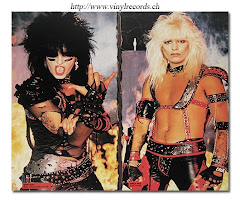The film Boys N The Hood portrayed two kinds of masculinity, one positive and the other dangerous. Positive masculinity is seen through the character of Tre’s father, who is responsible for his child, strong, and not temperamental. Tre’s father taught Tre that in order to ‘be a man’ one must be able to be responsible of the family and do his roles as man, or in other words support his family. This is reflected in what Tre’s father said at the beach, “Any fool can make a baby but only a real man can raise his children”. This is positive masculinity, especially in the culture and times when many men refuse to take care of their families, such as in the article “Male Discretion and Sexual Indescretion in Working Class Mexico City” by Gutmann, where many men view fathering a child is just ‘to provide the sperm which fertilizes the ovum’, instead of raising the child and taking care of the family. This kind of masculinity is similar to that in the society of South Central, yet contrary to Tre’s father’s view of positive masculinity. On the other hand, the film also portrays negative kinds of masculinities as seen through the character of Doughboy, who is ‘hard’, muscular, good in fights, but has low self control. This kind of masculinity is dangerous because in order to achieve this kind of masculinity men would have to prove their power through engaging in fights and violent activities. In this case the race of African American people in low-income neighborhood is depicted as stereotypically aggressive and irresponsible, reinforcing the dangerous kinds of masculinity.
Alternatively, women are mostly portrayed as passive agents who are subordinate to the men. They are often depicted as objects of men’s mock assaults, with men referring to them as bitches, hos or hoochies. They also tend to be depicted as vulnerable having less power over any situation, for example one woman appears to be helpless when mocked by Doughboy, and Tre’s girlfriend could only cry and whine when Ricky died and Tre left the house to take revenge. However, Tre’s mother and girlfriend appeared to be the outsiders within, since they did not fall in the stereotype because they and pursued their education. Tre’s mother was able to raise Tre independently and his girlfriend still stayed true to her values of prioritizing education. They seem to be the only female active agents who decided to take control of the situation, although still depicted as being less powerful compared to the male characters.


No comments:
Post a Comment
Note: Only a member of this blog may post a comment.